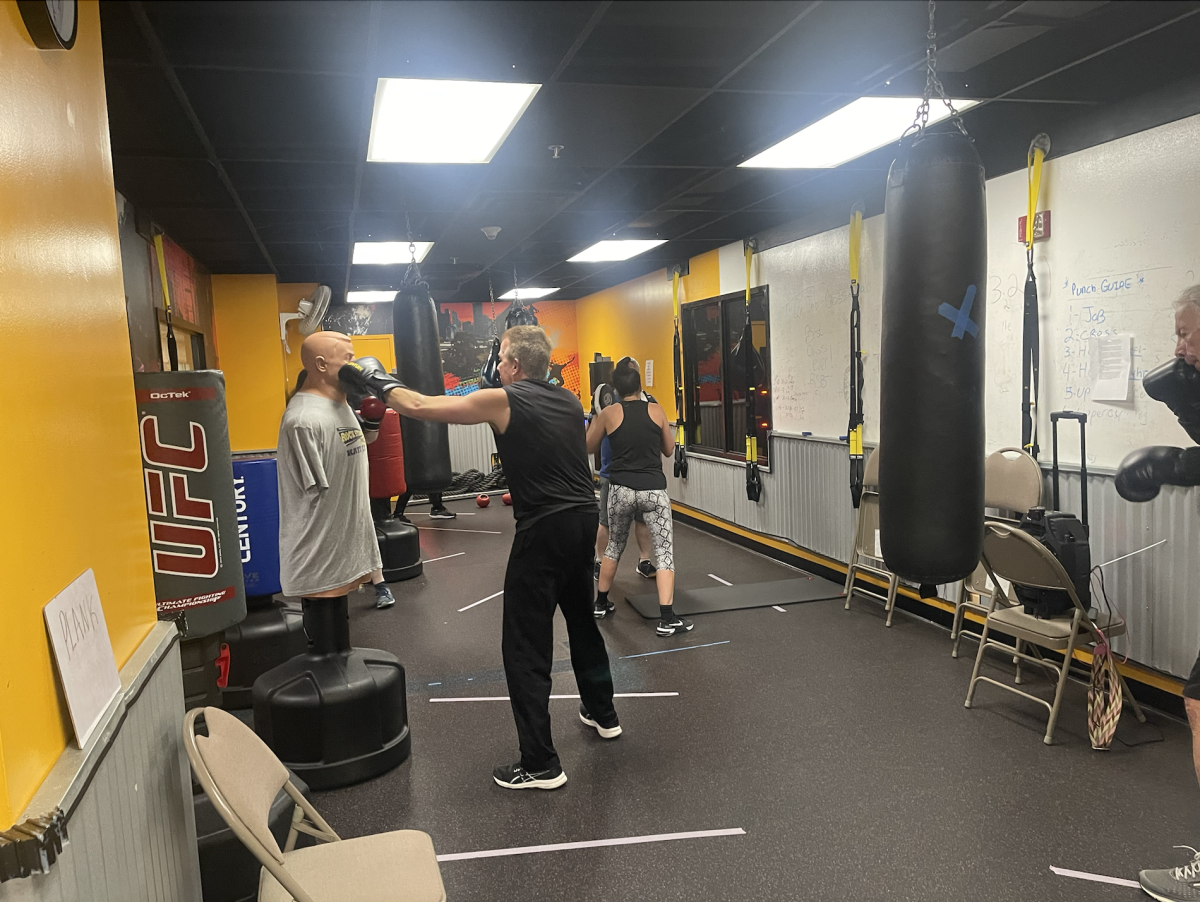With a plethora of facilities and activities such as pools, gyms, camps and wellness centers, it’s no surprise that the Katz JCC is a focal point for Cherry Hill. The Katz JCC offers programs to individuals of all ages, forging connections between community members. One such program is the Parkinson’s Connection, which works to counteract the symptoms of Parkinson’s Disease and weave together a strong bond between people affected by Parkinson’s.
Initially, the Parkinson’s Connection only consisted of a free, community-based dance class. However, when two coaches from the Katz JCC flew to Indianapolis to study a Rock Steady Boxing program for those with physical disabilities, the seeds for the Parkinson’s Connection were planted. In 2018, the Katz JCC established Rock Steady Boxing classes of their own in addition to community-wide dance classes, officially beginning the program.
Although some medications provide symptomatic relief for individuals with Parkinson’s, there is no cure. Parkinson’s often causes tremors and difficulties in movement, facial expressions, memory, speech and even swallowing. The Katz JCC Parkinson’s Connection aims to assuage the hardship Parkinson’s causes, offering a myriad of classes to target areas weakened by Parkinson’s. These classes include Tai Chi to improve balance, martial arts to bolster coordination and memory, Ready Steady Boxing to boost strength and endurance, pilates to alleviate neurological conditions and pedaling that slows Parkinson’s progression in individuals. Most of the classes contain no more than 12 people, but classes with limited materials like pilates accommodate up to five people.
“The only thing that science is seeing that can potentially slow the progression of the disease is exercise, so for a good population, movement is their medicine. We want to make sure that there is a kind of movement for every kind of Parkinson’s need,” said Megan Matis, the program coordinator for Parkinson’s Connection.
Members can attend the classes that fit with their schedule, and classes meet on a weekly basis in-person and virtually to maximize accessibility for everyone in the program. Some classes such as Hybrid Rock Steady Fitness even operate both in person and online to meet each person’s needs.
“After COVID hit, we wanted to make sure that we had a way to reach this population…Now that we’re coming out of that, we’re keeping those virtual capabilities so that even if the weather is bad, even if someone not feeling well, they can still get online and take a class,” Matis said.
To eliminate any financial barriers, the Parkinson’s Connection offers free hybrid Movement and Motivation classes that focus on drumming and dancing. These classes were first sponsored by the Parkinson’s Foundation, and now, the Jewish Community Foundation provides a grant. The Parkinson’s Connection also has two free virtual classes, yoga and group speech therapy, that continue to promote accessibility throughout the program for anyone who is interested in getting involved.
Out of the many classes offered, members of the Parkinson’s Connection have particularly adored Ready Steady Boxing. Matis attributes this to the fighting spirit that’s alive in individuals with Parkinson’s.
“Living with Parkinson’s can be frustrating, and so being able to come into a class that is good for [people with Parkinson’s] physically but also so good for them mentally, to be able to take out their frustrations on a heavy bag, that’s cathartic. Everyone could do with a boxing class,” she said.
In addition to targeting symptoms of Parkinson’s with various classes, the Parkinson’s Connection Program allows members to bond with people in similar situations as them. The program offers a caregiver support group, facilitated by a study coach who personally experienced a loss due to Parkinson’s. This group provides a safe, supportive environment for people whose lives have been radically altered by the disease, even if they don’t have Parkinson’s themselves. To reach a larger population of impacted individuals, every month the Katz JCC opens up this support group to those outside of the program, usually consisting of about 40 to 60 people. On a smaller scale, the Parkinson’s Connection includes Buddy Connection, which is a program that allows people with Parkinson’s to build a relationship with another person, fighting the isolation that Parkinson’s often leads to.
“[Head Coach Melanie Montana] really saw a need within our population to have that one-on-one connection. Some people are just not comfortable sharing with a group and so she wanted to start a program that gave mentorship opportunities, both because we have people in our program who’ve been living well with Parkinson’s for decades now and they have so much wisdom from it and because we saw so many newly diagnosed folks coming in…We wanted to give them that tether, that connection, with someone that they could call up one-on-one and talk to,” said Matis.
As a part of the Parkinson’s Connection team, Matis said she has seen significant improvement in a number of members. She described one member in particular who faced mobility limitations and struggled to express their emotions, but attended classes consistently.
“I remember they came in the door one day…I smiled and waved and [they returned] a big smile, [having] no Parkinson’s mask,…walking with no hesitation, no stumbling,” Matis said.
Since 2018, the Parkinson’s Connection program has been growing their community, talking to local neurologists, pharmaceutical representatives and physical, occupational and speech therapists to gain more knowledge about how to best support its members. The program has also led many recent events including a one mile walk to raise awareness for Parkinson’s and a regional Care Partner Summit to help the caregivers of those with the disease.
Through the many classes, events, and programs within the Parkinson’s Connection, the Katz JCC supports people of all abilities from all different walks of life. Members of the Parkinson’s Connection have also created powerful bonds with one another, frequently checking up on each other as they all navigate this difficult disease.
“If something does happen…I’m not the first one to know about it. The other boxers are telling me about what’s happening because they’re texting each other, they’re in touch with one another, they already have talked to someone’s husband to find out what they need…Pulling that curtain of isolation away and making sure that they’re taking care of each other, that’s just incredibly inspiring to watch. That’s a community. That’s a village, you know, that’s what we all need,” said Matis.


